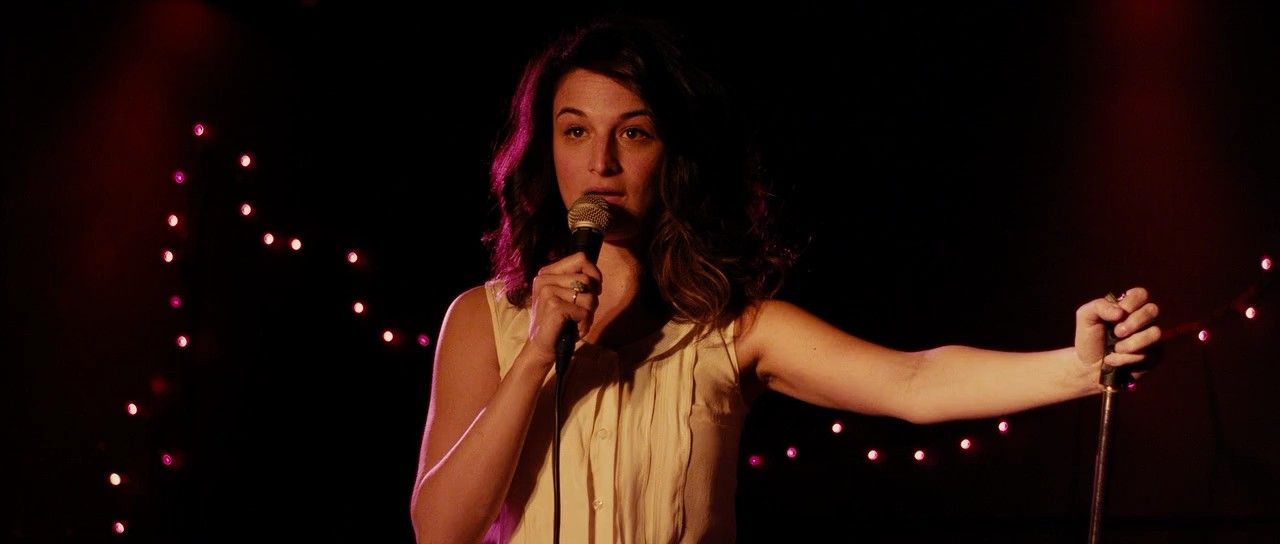With the ongoing curtailing of reproductive rights in the United States, movies about abortion have become more and more common. Even when the imminent overturning of Roe v. Wade was still a distant nightmare, state laws restricting access to safe abortion were already inspiring movies such as Eliza Hittman’s Never Rarely Sometimes Always and Rachel Lee Goldenberg’s Unpregnant. Both movies take different approaches to the same basic story: two teenage girls hit the road looking for medical help in another state after one of them gets pregnant. The two form an accidental trilogy with Natalie Morales’ Plan B, in which two high-schoolers are on the hunt for a drugstore that will sell them emergency contraceptives. But pregnancy motivated road trips aren’t the only thing that fuels the current wave of movies about reproductive rights.
Released on Sundance just a few months before the recent news regarding Roe v. Wade, Tia Lessin’s and Emma Pildes’ documentary The Janes tells the story of a network of women that performed safe, affordable, and very illegal abortions in the early 1970s in Chicago. If we take a short trip back in time, we soon notice a pattern surrounding films that tackle abortion from a pro-choice point of view. Generally, they tend to focus on the hardships cis women and pregnant people in general must go through when their reproductive rights aren’t respected, either before or after abortion was made legal. Mike Leigh’s Oscar-nominated drama Vera Drake stars Imelda Staunton as a woman that provided free abortions for her neighbors in 1950s Britain; 80s’ classic Dirty Dancing has a clandestine abortion gone wrong as a central part of its plot; and critically acclaimed Romanian movie 4 Months, 3 Weeks and 2 Days follows two women going through hell to terminate an unwanted pregnancy. No matter which way you look, stories of the trials and tribulations regarding abortion aren’t hard to find.
On the other hand, depictions of abortion as a regular part of life don’t get much attention in the movie world. In this scenario, watching Gillian Robespierre’s 2014 romantic comedy Obvious Child feels like taking in a breath of fresh air. A charming tale about an abortion gone right, the film is also an essential piece for a truly mature conversation about reproductive rights.
Inspired by a short-film of the same name also directed by Robespierre, Obvious Child stars Jenny Slate as New York comedian Donna Stern, who, after a particularly terrible break-up, has a one-night stand with a man she meets at a bar. Some time after the encounter, Donna finds out that she is pregnant and decides to have an abortion. Due to the lack of available dates in her local Planned Parenthood’s calendar, she’s forced to schedule the procedure on Valentine’s Day. As if this wasn’t enough, Max (Jake Lacy), a.k.a. guy from the bar, finds his way back into her life looking for something more. Clearly attracted to Max, but afraid of his reaction to the abortion, Donna is caught between pushing him away for good or telling him the truth and hoping for the best. Since the movie is a rom-com, you can already guess how things turn out: despite being initially confused, Max shows up on the day of the abortion to offer his support, and what was set to be Donna’s worst Valentine’s Day ever turns into an incredibly sweet, albeit odd, date.
In an interview with The New York Times, Robespierre stated that she decided to make Obvious Child as a sort of response to films in which the abortion plot was nothing but a red herring, eventually giving way to a change of heart and an uplifting birth. Movies like Juno, Knocked Up, and Waitress rubbed her the wrong way due to their “misrepresentation of women on screen when it came to unplanned pregnancy.” It’s safe to say that Robespierre succeeded in presenting audiences with a much more realistic take on unplanned pregnancies than the movies that bothered her so. Unexpectedly, she also managed to create a picture that serves as an important companion piece to all the aforementioned examples of the abortion movie canon.
Everyone is familiar with the risks that come with unsafe abortions. Even the anti-choice crowd is well aware of them. As a matter of fact, anti-abortion campaigns frequently turn the horrors of clandestine abortions on their heads, making the physical and emotional trauma that come from botched surgeries and counterfeit medication, as well as the difficulty in finding reliable doctors, into arguments as to why abortion should be made illegal in all cases. The pain that comes from the lack of access to proper medical care and the absence of an open, honest conversation about the topic is transformed into an unchangeable reality. In that sense, the overwhelming presence of negative depictions of abortion, even in the interest of raising awareness, can sometimes do as much harm as they do good.
However, positive depictions of abortion aren’t easy to find. In 2011, ABC’s long-running drama Grey’s Anatomy caused some ripples in the television world when one of its characters, Dr. Cristina Yang (Sandra Oh), chose to have an abortion simply because she didn’t want to be a mother. Usually, TV characters are only allowed to have abortions if there are socioeconomic or health factors getting in the way of motherhood. When it comes to movies, things aren’t so different. As Roberspierre pointed out, unplanned pregnancy movies tend to avoid the Planned Parenthood clinic – unless, of course, the story revolves around how hard getting an abortion can be.
This is where Obvious Child sets itself apart from the crowd. It’s not that the movie doesn’t condemn its protagonist for having an abortion, nor that it allows her to feel vulnerable and hurt without devolving into a guilt trip. None of the movies mentioned in this article shame their characters for going through with an abortion. What makes Obvious Child so important is that it's a romantic comedy in which the main character gets pregnant early on but doesn't want to have a child at that point in her life and that’s it. She gets the procedure, the guy, and a swift recovery. End credits. There are no sleazy men blackmailing her into giving them money or sex, no hemorrhages, no closed clinics, no trauma. Everything is fine, because that’s what happens when abortions are legal and safe. By making such a mundane movie about a woman terminating a pregnancy in a place where the law isn’t against her, Robespierre shows us that having an abortion doesn’t have to be the terrifying experience conservatives make it out to be. She shows us a world beyond criminalization that we need to keep in mind when striving to conquer or preserve our rights.
According to the global human rights organization Center for Reproductive Rights, since 2011, nearly 500 laws restricting abortion access have been passed in American states. These laws go from requiring parental consent for teenagers who want to terminate a pregnancy to forcing patients to look at fetal ultrasounds before having the procedure, to simply cutting funds for abortion services. Even with Roe v. Wade still alive and kicking, the situation in the United States is dire for cis women, trans men, and many non-binary people. On a global scale, things get even grimmer: the World Health Organization estimates that there are 73 million induced abortions worldwide every year, with 45% of them done in risky circumstances by untrained personnel. Ninety-seven percent of these unsafe abortions take place in developing countries. Looking at the numbers, it’s easy to see the need for pictures like 4 Months, 3 Weeks and 2 Days, Never Rarely Sometimes Always, and The Janes. We need greater awareness in order to forward change.
But, as media enthusiasts of all kinds have learned over the past few decades, representation matters. More than just staring at the abyss, we need to know what life is like for those in need. In plain English, to quell doubts and insecurities about abortion, we need to demystify it, to understand that, with the proper medical care and legal support, it can be a procedure as simple as dental surgery. And, in order to take this step, we need more stories about abortion that don’t involve fear, regret, hardships, and trauma – stories about regular people, like Donna Stern, living their lives to the fullest, now pregnancy-free.




